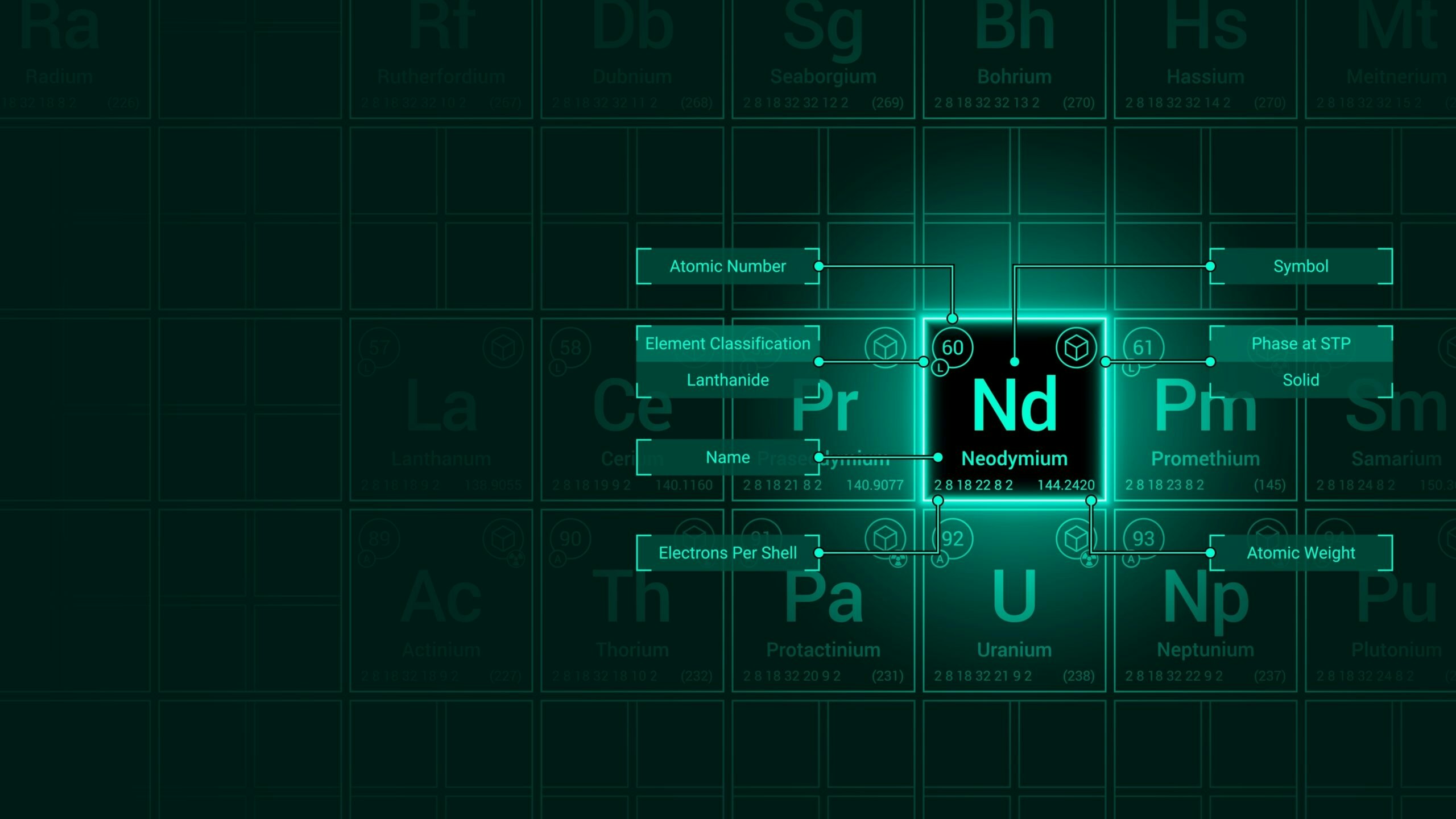Few Americans have probably heard of neodymium, but it’s a key ingredient in many of the items we use daily. Neodymium-iron-boron (NdFeB) magnets are used in a wide range of goods, from popular consumer items like smartphones, hard disk drives, and electric vehicle motors, to widely used medical devices like Magnetic Resonance Imaging (MRI) machines, to massive wind turbines that power our electric grids.
The only problem with NdFeB magnets is that the People’s Republic of China, an authoritarian nation on the other side of the world, controls over 90 percent of the global magnet supply and around 70 percent of all global rare-earth mining. These numbers represent a growing critical strategic vulnerability for the United States and our allies. In addition to consumer goods and industrial products, rare-earth metals like neodymium are also vital for our nation’s defense industrial base.
On Oct. 8, the Chinese government demonstrated why this dependency is so dangerous when it unveiled sweeping new export controls against these critical minerals and magnets. In response, the U.S. government promised to impose an additional 100 percent tariff against the imports of Chinese-made goods, which would take effect on Nov. 1. President Donald Trump threatened to cancel his highly anticipated meeting with Chinese President Xi Jinping at the Asia-Pacific Economic Cooperation (APEC) summit in South Korea next week, although the meeting seems to be still on at the time of writing. The news sent the global markets reeling and ignited a new chapter in the so-called “trade war” between the two largest global economies.
Trade remedies, however, will not solve the underlying problem; only increasing domestic production can remedy that. The United States is slowly but surely beginning to adopt industrial policies that incentivize domestic producers of rare earths. In July 2025, the U.S. government announced that it reached an agreement with MP Materials, a leading U.S. rare earths and magnet producer, and provided a $150 million loan for their separation facility in California. This public-private partnership includes a 10-year commitment for the U.S. government to purchase magnets from a new manufacturing facility MP will build and the purchase of $400 million of newly created preferred MP Material’s stock. The company will use this stock “to expand its existing rare earths separation and processing capabilities, as well as its magnet production capacity.”
In a recent conversation I had with Matt Sloustcher, the executive vice president of MP Materials, one thing was clear: the company is fully committed to providing an answer to one of our nation’s most pressing and urgent national security challenges. I asked whether in doing so, we risk following China’s example of “state capitalism” and “national champions,” including practices the U.S. government has previously decried like obtaining so-called “golden shares” in private companies. Sloustcher countered that a more forceful industrial policy is a necessary and rational response to support U.S. industry competing against a state-backed, non-market monopoly. Sloutscher also emphasized that it is China’s own actions that put the “supply chain into peril” and thus driving these policies. It became evident to me from our conversation that as much as free market policies have benefited our nation’s economic growth, state-directed policies have also been necessary at times to advance national security goals. Rare earths mining and processing is today at the top of that list.
We also can’t tackle this challenge alone. In its 2024 report on critical minerals, the bipartisan U.S. House Select Committee on Strategic Competition between the United States and China said: “The United States must work closely with allies and partners to bolster domestic mining and production, diversify supply chains, and enhance the resilience and sustainability of the U.S. rare earth magnet and battery industries.” Things are moving in a positive direction here as well: in response to China’s recent actions, the Group of Seven (consisting of the United States, the UK, Canada, France, Germany, Italy, and Japan) has established a working group to tackle the issue.
We shouldn’t make rare earths a deadly vulnerability for U.S. national security. With a balanced industrial policy to encourage domestic production and increased collaboration with trusted allies, ending dependence on authoritarian Beijing is fully possible in the immediate future.






























